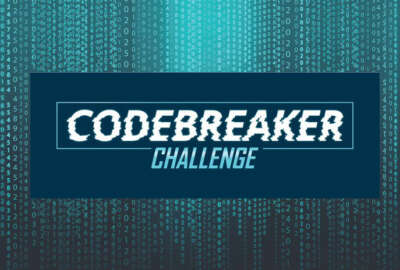
IC faces human capital challenges like any component of government
The IC is adapting how it operates to catch up with an ever changing world that has made the hiring and retaining of talent increasingly difficult.
The intelligence community is adapting how it operates to catch up with an ever changing world that has made the hiring and retaining of talent increasingly difficult — but some of the challenges the IC faces are unique.
“We need to adjust what we mean when we say that if the norm is different today, then the criteria needs to be different. So there’s little things like that that the IC is slowly chipping away at,” said Richard Girven, director of the Cyber and Intelligence Policy Center at the Rand Corporation, on Agency in Focus: Intelligence Community.
From the outset, one major hurdle for joining the IC that other parts of government or the general working population do not face is the thorough security clearance process. Just to get inside many IC buildings requires a clearance. Girven said some of those criteria to acquire a clearance need to change. For example, one disqualifying factor can be financial debt because a bad actor can potentially use that as leverage to compromise an individual. This causes issues especially for students leaving college that want to enter the IC but are saddled with large sums of student debt.
“The average millennial has $45,000 in student debt. So the college educated population of millennials that the intelligence community might want to hire actually have more debt than their next-gen or baby boomer parents and grandparents,” said Girven, a retired Army officer that served multiple stints at the Defense Intelligence Agency.
The daily work environment is also not the most appealing. Being locked in windowless rooms for hours at a time while not being permitted to use your cellphone is not exactly a welcoming thought, especially for younger candidates who are accustomed to being constantly linked to the rest of the world.
“The environment could be challenging compared to a normal life if you have to lock up your cell phone and you can’t talk about your work and so forth,” Girven said.
So human capital officers must make sure candidates understand the importance of the work so they can look beyond that and be excited to tackle critical missions with cutting edge technological tools alongside some of the sharpest minds in government.
Though change takes time, especially in the government, human capital officers in the IC have for years understood they must be willing to adapt their recruitment strategies and are constantly doing just that. Things as simple as improving their web pages to be more dynamic and interactive so they can be better used as a resource, to cultivating a more direct pipelines for attracting students.
“Human capital officers have done a good job of outreach at educational institutions, both to market what it is that they do on the national security side and to recruit from the best populations of students,” Girven said.
At the same time, the IC still faces many of the same challenges other workplaces face, like improving diversity and inclusion in the workforce. Not only diversity in terms of demographics, but “diversity of ideas and diversity of thinking styles and diversity of work styles, so that you don’t get into a group think environment where everybody, not only do they look the same, they all think the same. That’s not helpful when you’re trying to solve really complex and very serious national security threat issues … but they’re taking steps to improve.”
Copyright © 2024 Federal News Network. All rights reserved. This website is not intended for users located within the European Economic Area.
Alazar Moges is digital engagement editor at Federal News Network.
Follow @amogesWFED
Related Stories





